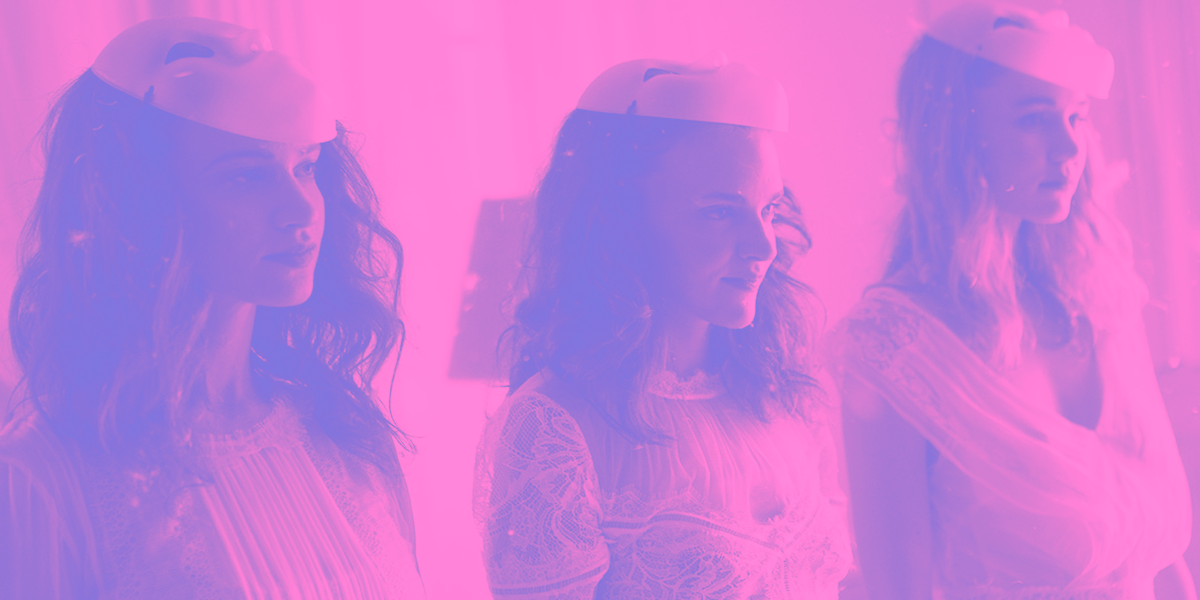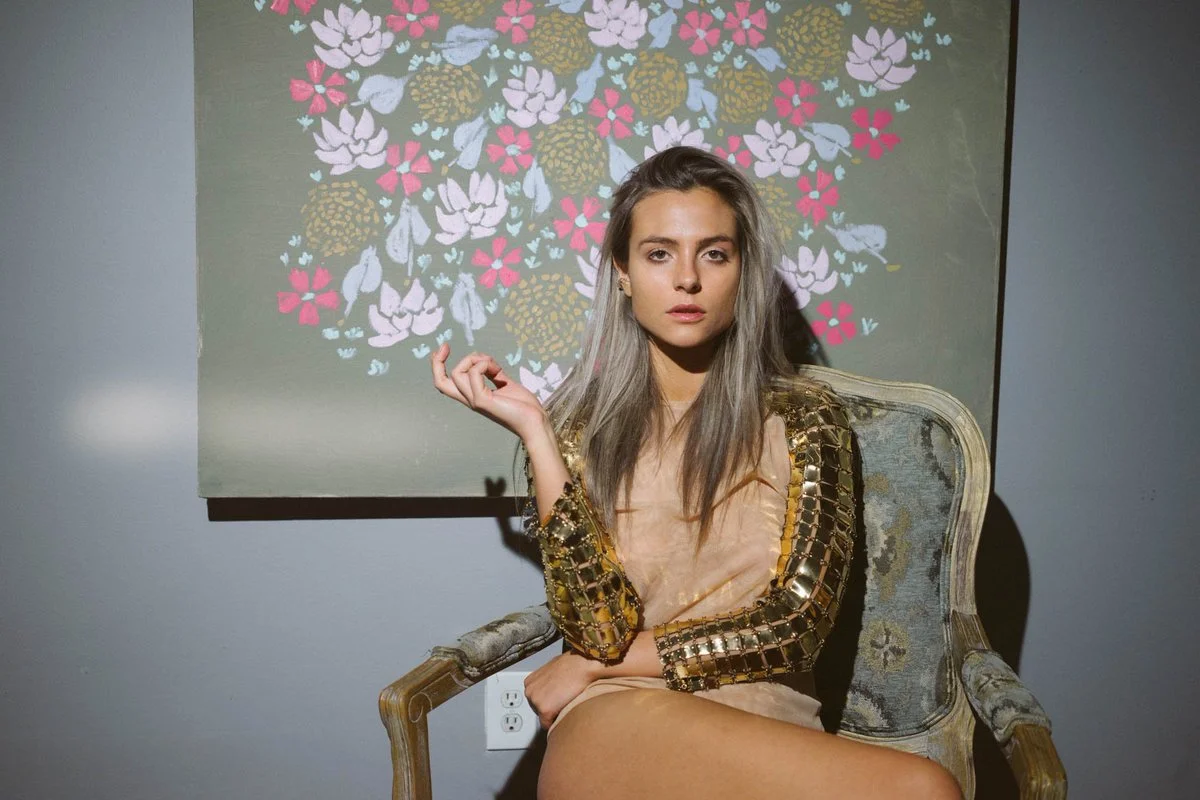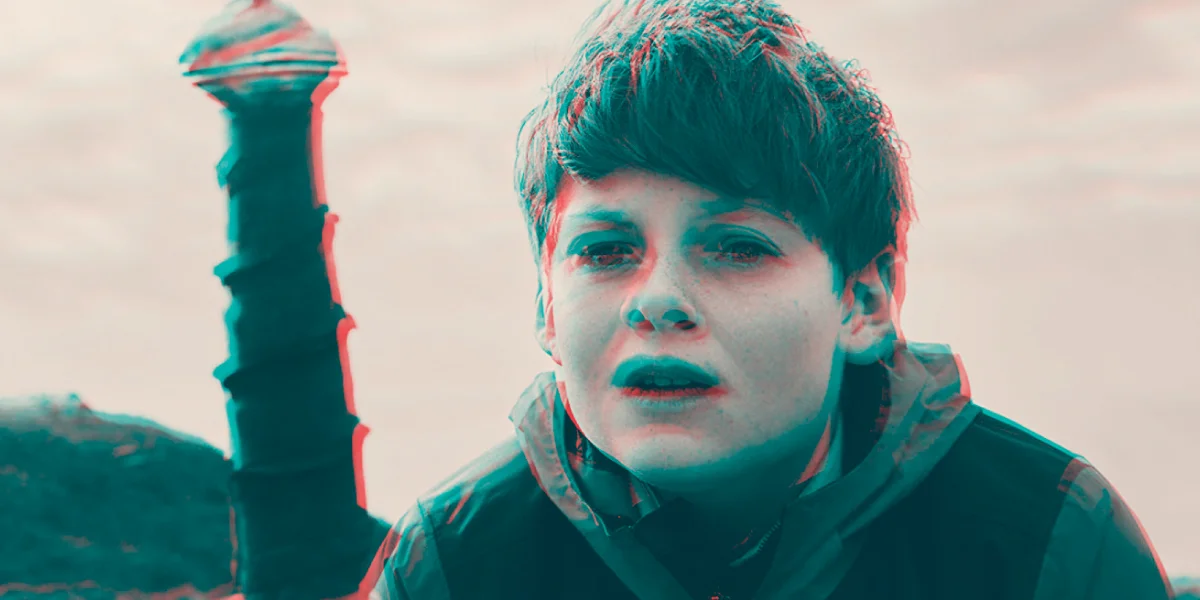Writer/Director Mitzi Peirone on Braid, the First Cryptocurrency-Funded Feature Film
Mitzi Peirone, the writer and director of the psychological horror heist film (how’s that for a “genre” film?) Braid, knows a thing or two about beginnings. Not only was the film her first feature as writer and director, it was also the first feature film fully funded by cryptocurrency (raising a reported $1.7M in just two weeks). And no, I don’t super know what that means either, but luckily we got in touch with Mitzi to explain it to us.
Starring Madeline Brewer (The Handmaid’s Tale, Cam, Black Mirror) the story follows two wanted women who decide to rob their wealthy but psychotic friend who lives in the fantasy world they created as children. In order to take the money they have to take part in a deadly perverse game of make believe… and IT LOOKS AWESOME.
We spoke with Mitzi to learn more about her filmmaking journey, what advice she offers to first-time filmmakers, and just what the hell that cryptocurrency stuff is all about.
Braid is your first feature film. How did you take it from initial idea to final film?
Braid started as an existential philosophical quest: I wanted to understand what separated reality from dreams, what that line between real and imagined was and whether that line existed at all. I started reflecting upon the fact that since childhood we instinctively play make-believe, we practice and rehearse life to a subconscious degree, without anyone telling us to, we just naturally inhabit roles and play by made up rules. I realized afterwards that as adults we still operate under the same belief system, that we abide to imaginary conventions and societary rules, playing the parts we believed were right for us. Everything is invented; names, jobs, laws, politics, philosophies, religions, geographical borders, even time, all taking part in this great play of existence.
We are still kids playing make believe, adults in global sandbox. I realized reality was an extension of our thoughts and that we are only as powerful as we believe ourselves to be. So the idea for adults playing dress up stuck in a mind game came to mind pretty early on, I was about 23; the heist propulsion of the story came afterwards, but I always wanted to make something that made the audience feel like they were getting lost in their own minds too, instead of watching and feeling the psychological downfall of the characters by association, I wanted the camera and script and colors, editing, sounds all of it to lose its mind too. I wanted to know what it was like to be incapable of discerning waking life from dreaming.
What themes did you set out to explore with Braid and how much of yourself is reflected in the final product?
Themes of existentialism, philosophical pondering, semiotics, perception of reality, time and the realms of dreams, how they affect our world: traveling through the layers of consciousness that we like to perceive as separate, are yet at once intertwined; fantasies, memories, hallucinations, daydreams all braided into one, finding us stuck, tangled and strangled in this deadly mind fever. There are parts of me in all three characters, their delusions, their wandering minds, their violent passions, their psychological manipulation, their decadence.
Braid in the end is a form of cautionary tale, a psychedelic odyssey without an exit that warns us how potent yet dangerous dreams can be, how easily they can enable us and how quickly they can trap us in the walls of our own heads: paranoia, fears, doubts, delusions, procrastination all live on the dark flip side of dreams and imagination. Being paralyzed by fear is like being stuck in a recurring nightmare. And that is made up, just as much as any other dream that can propel anyone to their rosiest futures. But here comes the element of time: in dreams time slows down. Braid warns you not to dream for too long without taking action or by the time you wake up it might be too late.
Braid was the first film fully funded by cryptocurrency. Can you tell us a little about how you decided to fund in this fashion and how exactly it works?
I didn’t have the connections to get financing from a studio, nor did I want to use crowdfunding platforms that did not offer a return to contributors. I also wanted full creative control of the movie and needed final cut. The tokenized world is full of intelligent opportunities for alternative funding, I think it’s really great for independent artists: I partnered up with the CEO of Consensys, a leading blockchain tech company through which we created a crowd-selling platform for the film that offered 30% of the net profits in exchange for 1.7M to be raised in two weeks: our investors will be the first ones to be refunded and receive an additional 15%.
The reason why we used cryptocurrency is because of its underlying technology, the Blockchain: it is peer to peer technology that enables smart contracts at every transaction, these are also known as “if… then” contracts, which means that if the investment generates profit, then the investor will automatically receive their share. The sale started in June 2017 and it was fulfilled by our deadline. We were in production for 5 weeks, post production for 6 months and premiered at Tribeca Film Festival in April 2018. The film was released in theaters nation-wide in February 2019. World-wide rights were acquired by Blue Fox Entertainment.
What's the biggest surprise about making your first film?
My biggest surprise was how glorious being on set was. It is the most testing yet blissful experience, being on this fantastical journey with a group of people that becomes your family by having a shared lucid dream in mind, all working within this sensorial orchestra together. The artistic process is a miracle; out of nothing, suddenly, everything.
What advice would you give to an up-and-coming filmmaker looking to make their first feature?
My advice to a first time feature filmmaker would be to make the movie about what doesn’t let you sleep at night. Whether it is uplifting or terrifying, the motif behind the story has to be so invincibly important you will do anything to make it happen. Countless things will get in your way, countless sacrifices you will have to make and even after it’s done and out into the world there are chances that it will be misunderstood, berated, insulted and inevitably dissected without you being able to utter a word about it, and people will make what they want of it. But it will also shake some people from the bottom of their souls and that’s when it all pays off: when you make another human being feel less alone. Storytelling is about community, it’s to make us all feel closer, and you as the artist must show your wounds in order to heal them.
Braid is now available on VOD across all platforms: iTunes, Amazon Prime, Vudu etc.






